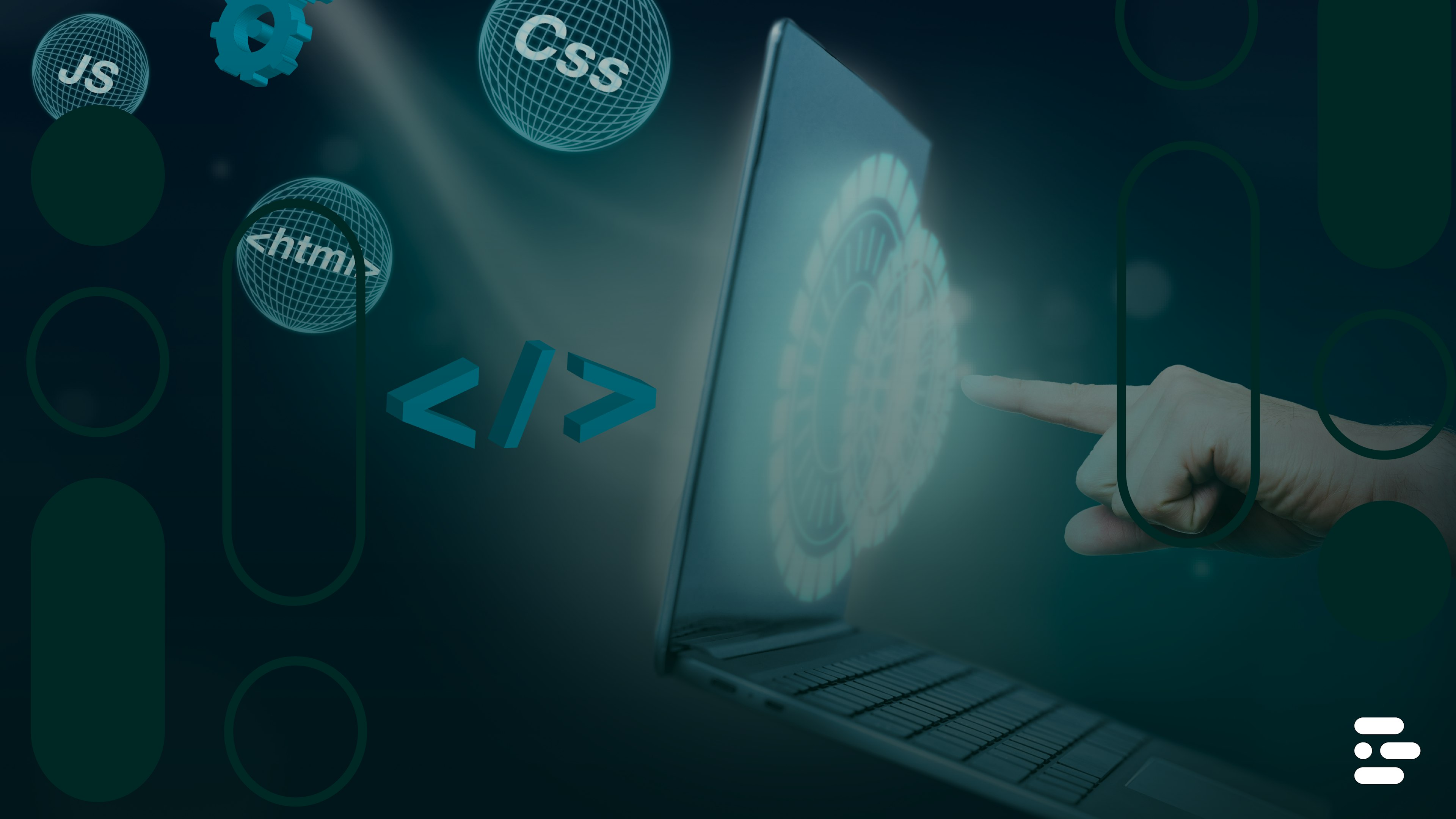The Impact of AI In Software Development


Technology has evolved over the years, and its significant impact on the economic environment is undeniable. Specifically, the IT industry has sought various ways to drive innovation and continuous growth using technology. Each emerging technological tool holds its own promise, from the Cloud, 5G, and Artificial Intelligence (AI) to machine learning and big data, all making an incredible impact on businesses.
Evidently, 2023 can be considered a breakout year for Artificial Intelligence (AI) with the launch of ChatGPT. Although AI has been around since the 1950s, it started becoming increasingly popular in 2012. With the launch of ChatGPT by OpenAI in late 2022, AI has become a topic of discussion among tech executives, decision-makers, and individuals. Interestingly, 64% of executives have incorporated AI into their daily operations to improve efficiency and productivity.
Many recognize the significance of AI, from conversational to generative AI — its transformative power is fostering growth, improving workflows, and analyzing vast data sets quickly. We can clearly state that AI is here to stay, and those who do not leverage its wide benefits may be left behind. Forbes reports that AI is projected to see an annual growth rate of 37.3% from 2023 to 2030.
The IT industry is not immune to the revolution of artificial intelligence. Software developers who integrate AI into their development processes are experiencing significant benefits and more efficient solutions. From automating repetitive tasks to assisting with complex decision-making, AI has proven to be an invaluable tool in software development.
In this article, we will explore the definitions of software development and artificial intelligence. We will discuss how AI can be used in software development, its benefits, and debunk the widespread myths of AI in software development.
What Is Software Development & Artificial Intelligence?
Software development is the process of building, designing, programming, and testing software products and applications. A software development team undergoes the software development life cycle (SDLC) to create a software solution that addresses challenges and problems. These software products can be mobile applications, websites, or more complex systems, all with the goal of fulfilling a specific need and accomplishing tasks for end users.
A software development life cycle (SDLC) is the specific steps and stages that a software development team takes, including requirement analysis, system design, coding, testing, deployment, and maintenance, to build a software solution.
What is Artificial Intelligence (AI)?
Artificial Intelligence is a subset of computer science that performs tasks in a human-like manner. It mimics human intelligence and uses advanced algorithms and machine learning techniques to analyze large data sets, aid decision-making, and enable real-time conversations like ChatGPT which can perform multiple tasks and have conversations with humans.
Software Development Prior to AI
Software development, with a history spanning over 50 years in the industry, has continually evolved as developers have sought smarter ways to build applications. Before the rise of Artificial Intelligence, the IT sector relied heavily on a largely manual approach to software creation, emphasizing linear workflows and traditional methodologies such as the waterfall approach. Developers adhered to models or methods that encompassed coding, debugging, testing, and deploying features. Over time, various methodologies, such as agile approaches and lean methodology, were explored to find faster ways to drive innovation. These methodologies yielded significant outcomes, with giants like Google, IBM, Dell, and Microsoft rolling out exceptional products. Now, in what's often referred to as the "fourth industrial revolution," developers can leverage AI for quality assurance, task automation, project management, and much more.
How To Use AI In Software Development

Beyond automating tasks and facilitating quick decision-making, development teams can integrate artificial intelligence and machine learning into their projects to enhance their development processes. Instead of focusing solely on the features and functionalities of a software product, the ML model can help analyze data and suggest ways the software development team can address the needs of users. Let's explore how AI can be utilized in the software development process.
Requirement Gathering
The use of artificial intelligence in software development can assist developers in gathering requirements for a software product. AI aids in the initial process of ideation, determining which features are important and the requirements needed to achieve them. This is particularly useful in complex projects that demand complex functionalities. A good example is IBM's Watson AI, which assists with requirements gathering and aids in the software development lifecycle, streamlining workflow and enhancing productivity.
Code Generation
AI proves to be particularly beneficial to developers when it comes to code generation. Machine learning models can assist in writing code based on prompts, providing context for the desired code function, and offering relevant suggestions. This allows developers to code more rapidly and aids in automating repetitive tasks such as designing user interfaces and formulating data models. With these AI algorithms, developers can allocate more time to intricate, human-centric tasks, thereby optimizing the development process.
Code Debugging
Through AI systems, bugs and errors in software code can be detected more efficiently. AI's machine learning algorithms help identify patterns and issues before the code is even deployed to the branches. This proactive approach saves time that would traditionally be spent on manual debugging and code reviews. Software development teams, especially those working on complex projects, can greatly benefit from this AI-driven bug detection.
Quality Assurance Testing
A significant part of developing a software solution involves testing and reviewing to ensure it meets the initial requirements and addresses the needs of the end-user. AI enhances the testing process by automating repetitive test scenarios, identifying potential errors, and enabling developers to correct these errors before launch. Using AI-driven quality assurance tools can provide insights and recommendations, helping QA specialists prioritize and focus on critical areas, making the process efficient and effective.
Enhanced Productivity and Project Management
Over time, AI has demonstrated its capability to boost productivity and efficiency by automating tasks, streamlining workflows, and aiding in scheduling. For project managers, AI algorithms can accelerate processes and optimize various aspects of project execution, ensuring tasks are completed promptly and resources are allocated effectively.
Predictive analytics
The predictive analytics capabilities of AI are assisting developers in decision-making by anticipating user preferences and gathering important data that can forecast future threats and data leaks. This analytical power aids in understanding user behavior, pinpointing features that users are most likely to be attracted to. With this prediction, development teams can prioritize and refine those particular features first.
User Personalization
The branch of AI known as natural language processing (NLP) can help developers analyze user experience and feedback. This analysis can enhance the user experience and create more personalized interactions for users. Using NLP algorithms, developers can identify which features best address users' needs and preferences.
Additionally, through NLP, chatbots can be developed to understand user queries, analyze context, and provide accurate and helpful responses. This not only improves the user experience but also saves time for both users and customer service representatives.
The Benefits of AI In Software Development
AI has taken the IT industry by storm, and organizations have either integrated AI into their processes or incorporated AI features into their software solutions. AI solutions offer significant advantages to software developers and engineering teams. Here are some of the benefits of AI for a software development team.
Project Planning
The beginning of most software development projects starts with the planning phase. If the software development team uses the agile methodology approach, then sprint planning will be a major part of the project planning stage. The product manager can use AI-driven project management tools to ensure productivity and enhance decision-making.
Project Management
From the project planning phase to managing the entirety of the software project, AI can be invaluable for project managers. Tasks can be easily automated, for instance, some project management tools use conversational AI to assist in writing project explanations, highlighting important bullet points, and generating weekly status reports. AI can also aid project managers with budget allocation, estimation of timelines, and risk modeling.
Cybersecurity
Security threats and attacks jeopardize data, confidentiality, and the integrity of a software product. To mitigate risks and manage the rate of cyberattacks, AI tools can be used to identify trends and patterns and also ensure that software systems are fortified against potential breaches.
Myths of AI in Software Development
With the growing adoption of AI, numerous myths and unfounded rumors have surfaced regarding its impact on software development and engineering teams. Given the increased hype around AI, it's easy for various theories to gain traction without factual backing. We debunk some of the popular artificial intelligence myths and present the facts.
Myth #1: AI will replace software engineers
AI cannot and will not replace software engineers. Instead, it will help software engineers evolve, improve their code quality, and accelerate the process.
One of the disadvantages of using AI in writing code is that it sometimes produces poor results. This is where human intelligence comes in, to assess the code and weed out the errors.
Beyond code writing, there are other human-centric aspects of software development and engineering that cannot be replaced by ai solutions. Examples include problem-solving, design, and addressing complex components and challenges.
Software engineers can benefit from AI by staying updated with the latest tools and understanding how they can leverage AI-powered tools to optimize tasks.
Myth #2: AI is just a buzz
The hype surrounding AI, especially since the launch of ChatGPT by OpenAI, is undeniable. For some, it may seem like just another fleeting trend, but in reality, AI is revolutionizing numerous industries. From supply chain management to healthcare, transportation, retail, and advertising, the impact is far-reaching. AI processes vast amounts of data, driving valuable insights crucial for informed decision-making.
Myth #3: AI is useful for only data science experts
The myth that AI is solely for those with a great understanding of data science is untrue. While AI is certainly beneficial for data science professionals, it can be used by individuals in the field of engineering and beyond. Just as computers aren't only for programmers and smartphones aren't exclusive to tech enthusiasts, AI is rapidly becoming a tool for everyone.
The impact of AI is wide and goes across different industries, therefore, the belief that AI is reserved solely for data science experts is a limited perspective. There are AI solutions that have pre-trained models that require only prompts, and present opportunities for innovation and efficiency.
Myth #4: AI can write flawless code
Another misconception about AI in software development is that it can generate flawless code without any human intervention. While AI can assist in code generation and suggest improvements, it is not capable of writing perfect code on its own. AI algorithms rely on the data they are trained on, and their recommendations are based on patterns they have recognized. As mentioned earlier, AI can generate poorly written code with very low code quality. This raises concerns about AI potentially creating biases or flawed coding practices. Therefore, the responsibility for writing high-quality code rests with human developers who understand the complexity and requirements of the software project.
Conclusion
In summary, AI has become an integral part of software development, enhancing the capabilities and efficiency of developers. Software teams can now automate testing processes, improve natural language understanding, enable predictive analytics, and provide tools for faster development. Innovation is taking a positive turn with AI-powered solutions, and AI is changing the way software is built, improving the overall user experience.
As AI continues to advance, it is expected to bring even more innovations to the software development field, further transforming the industry. It's important to note that AI is not replacing human developers but instead enhancing workflows and improving the quality of software solutions produced.
Devsu, Your Software Development Partner
For over a decade, we have built software solutions for numerous leading companies. With the emergence of AI, it's crucial for your business to harness its potential in addressing business challenges and enhancing customer service experiences. From chatbots to facial detection and recognition, text editors or autocorrect, to search and recommendation algorithms, we can help you build quality software solutions quickly. Contact us to learn more.
Subscribe to our newsletter
Stay informed with the latest insights and trends in the industry
Content
You may also like


